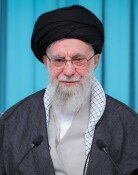Defense Ministry May Halve Korean Forces in Iraq
Defense Ministry May Halve Korean Forces in Iraq
Posted September. 12, 2005 07:02,
It was confirmed on September 11 that the Ministry of National Defense is considering halving the Zaytun unit stationed in Irbil after next January. Currently, 3,200 soldiers are being stationed in Irbil.
Meanwhile, some in the governing party have been arguing for a reduction in the Zaytun unit by 1,000. The idea and the Defense Ministrys consideration are likely to prompt a full-fledged discussion over the matter.
Cutting the size of the Zaytun in half in January next year-
Military news sources say that the Defense Ministry has reached an internal decision of a withdrawal in stages according to which the withdrawal will be carried out by reducing the number of newly deployed soldiers to replace troops already on mission in Iraq starting the latter half of this year. But the division command, military engineers and the medical battalion will be left behind in Irbil.
The ministry has concluded that the actual withdrawal will start after consulting the Iraqi government, which is scheduled to be sworn in early next year, and the command for the Multinational Force-Iraq. The defense authorities have been reviewing options of reducing the Zaytun troops since early this year.
Compared to the early days of deployment, its much safer there. We accomplished most of our missions. So it is time that we had discussions over unit size again, said a military official. I dont think other nations would be against Koreas pulling some of its troops out of Iraq.
What led to the idea of reduction and what is the outlook for the unit?
The purpose of sending the Zaytun unit to Iraq was to restore peace to the nation, and the Defense Ministry concluded that the Zaytun has accomplished most of its duties.
Since September last year when the unit arrived in Iraq, Korean soldiers have grown popular with local Iraqis by offering medical services and assistance for reconstruction. The Zaytun has contributed substantially to improving Koreas image as a friendly nation and was asked to extend its service in Irbil.
The Defense Ministry says that Korea-U.S. relations, too, have benefited from the deployment. Previously, the relationship between the two allies had been faltering due to the North Korean nuclear issue and the reduction in the American forces stationed in Korea. Another positive aspect of the Zaytuns presence in Iraq as part of the multinational force is that Korea has burdened its share of responsibility as a member of the international community.
The government sees that the deployment has had economic benefits as well. Since the sending of the Zaytun, Korean construction companies have signed far more contracts in the Middle East.
Yet, some politicians and civic groups voice their opposition to the extension of the deployment as things calm down in Iraq. And the Defense Ministry has taken their opposition into account.
Realistically, it is inevitable to make the Zaytun stay longer whose deployment period ends at the end of this year. And disputes over the passage of an extension bill in the National Assembly are easily expected. Therefore, those who are against the extension need to be soothed and persuaded by proposing the reduction in the Zaytun unit.
How will the reduction be carried out?
I think that while reducing the size of the deployed unit, we need to increase the number of technical personnel to enhance the quality of our services offered to Iraqis. And we need to pursue a transfer of reconstruction jobs to the private sector, an insider in the military said.
By the mid-October, the military will select 700 to consist of the third segment of the third wave of replacement troops. They will be prepared for discharging duties and then sent to Iraq in the mid-December. The plan hints at the authorities guidelines that they, in effect, will sustain the deployment until after January next year.
The Zaytun unit consists of two civil affairs brigades and one support force. The entire unit is divided into three, each of which is replaced one at a time. The first segment of the third contingent of 1,800 has replaced the second contingent, and the second segment of the third contingent of 500 will leave for Iraq at the end of next month.
The proposal of reducing the Zaytun unit will very likely be floated for serious discussion when the extension bill is introduced in the National Assembly at the end of this year.
Sang-Ho Yun ysh1005@donga.com







